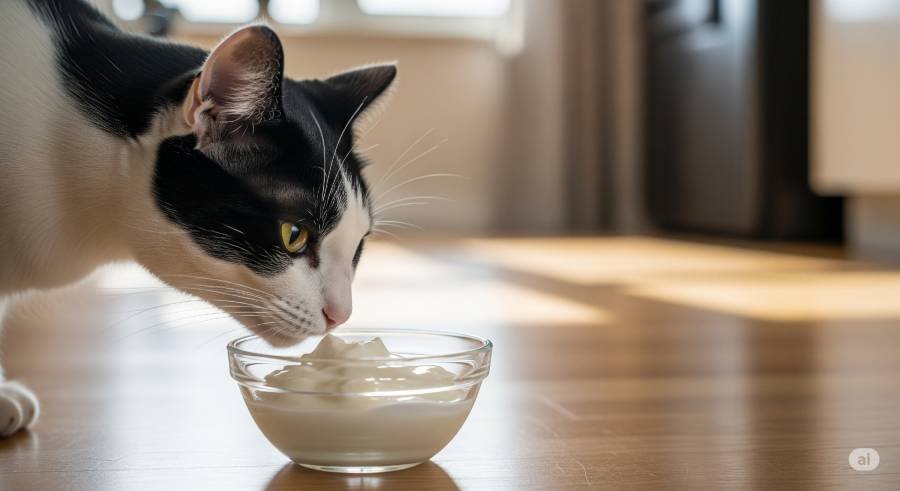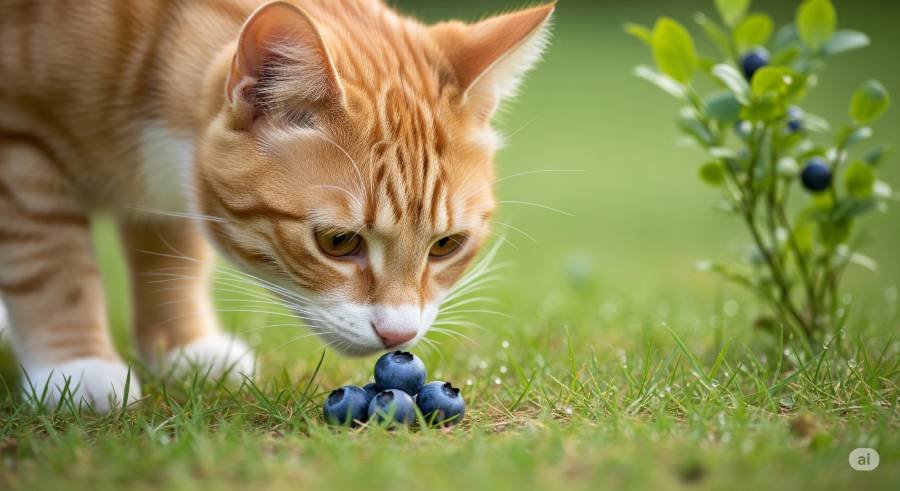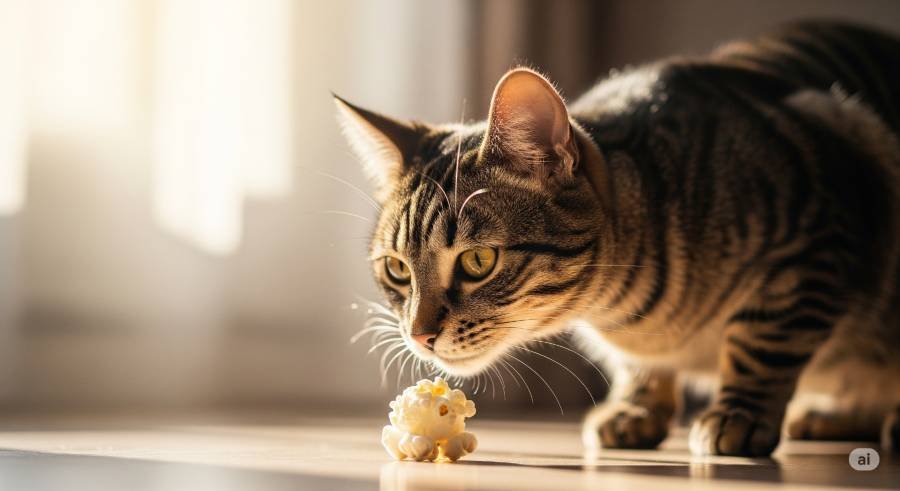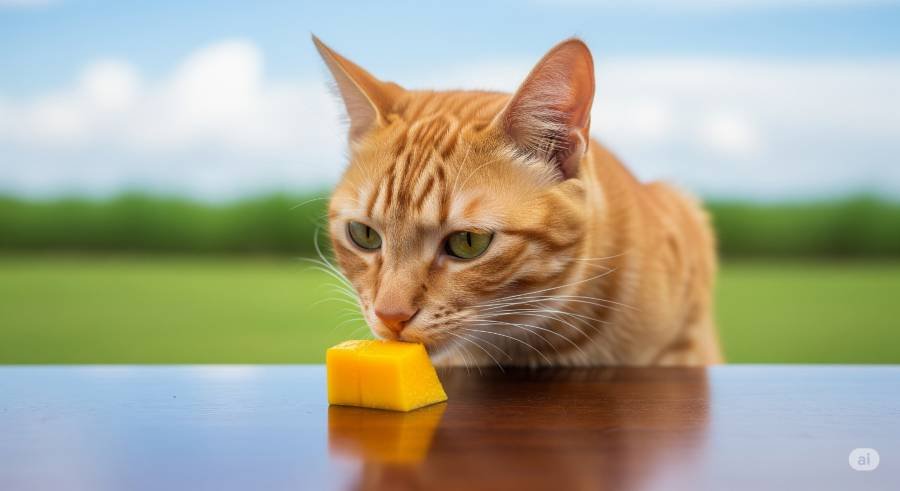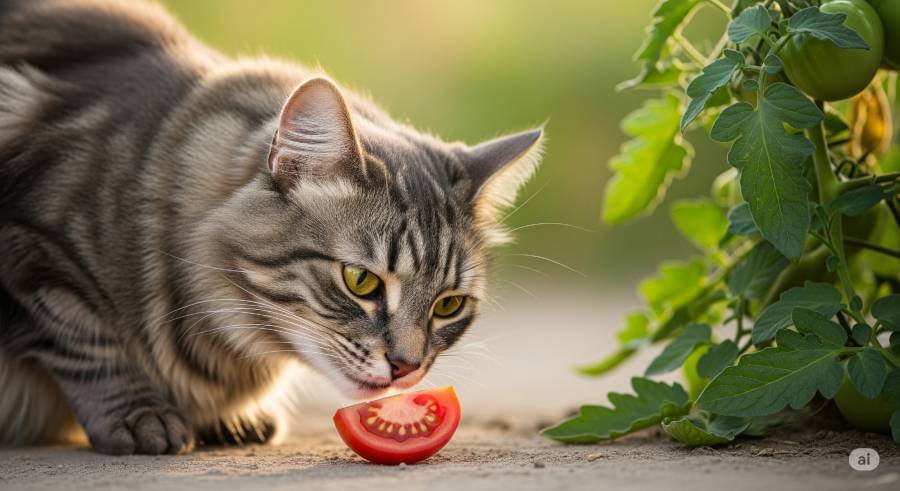Yes, cats can eat bananas in small amounts as an occasional treat. While bananas are not toxic to cats, they are not a necessary part of their diet and should not replace their regular cat food.
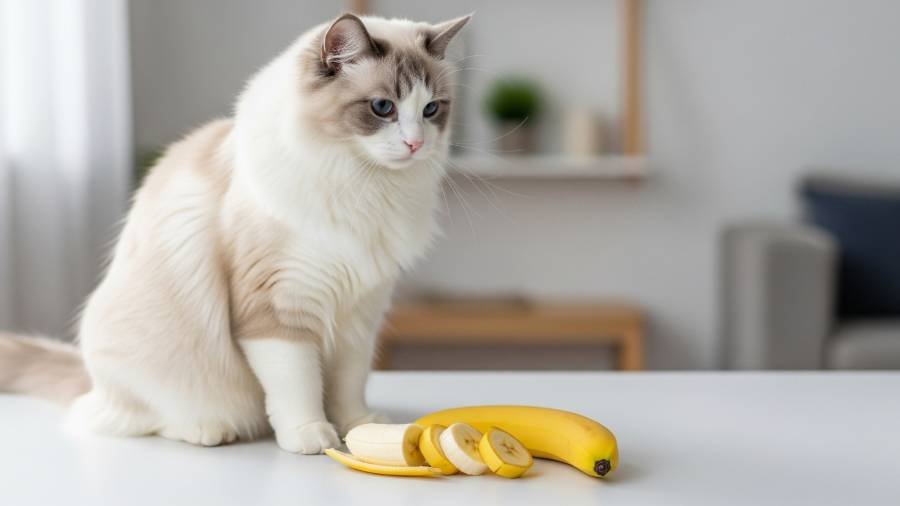
Nutritional Profile of Bananas
Bananas are a popular human food known for their potassium content, Vitamin B6, Vitamin C, and dietary fiber. While these nutrients are beneficial for humans, cats have different dietary needs. As obligate carnivores, their primary nutritional requirements are met through animal protein.
Are Bananas Good for Cats?
While bananas aren’t inherently harmful to cats, they don’t offer significant nutritional benefits tailored to their needs. Cats can get all the essential nutrients from a balanced cat food. The high sugar content in bananas means they should only be given sparingly to avoid contributing to excess cat’s daily calories.
Potential Risks of Feeding Banana to Your Cat
Despite being generally safe in small amounts, feeding your cat bananas can carry some risks if not done correctly.
High Sugar Content
Bananas are sweet foods like bananas due to their natural sugar content. Frequent consumption of sugary treats can lead to weight gain, dental problems, and potentially impact blood sugar levels in cats.
Digestive Issues
Some cats might experience digestive issues after eating a banana. This could manifest as an upset stomach, diarrhea constipation vomiting and regurgitation. Introduce bananas slowly and in very small quantities to monitor your cat’s reaction.
Choking Hazard
While the soft texture of a ripe banana makes it less of a choking hazard compared to some other foods, it’s still important to cut the banana into small pieces before offering it to your feline friend. This is especially crucial for kittens eat bananas, as their airways are smaller.
Banana Peels
Never allow your cat to eat banana peels. Banana peels are difficult for cats to digest and can cause gastrointestinal upset. They may also contain pesticide residues that could be harmful.
Allergic Reactions
Although rare, cats can have allergic reactions to various human food items, including bananas. If you notice any signs of an allergic reaction, such as itching, swelling, or difficulty breathing, after feeding your cat banana, seek veterinary attention immediately.
How to Safely Feed Banana to Your Cat
If you choose to offer banana to your cat, follow these guidelines:
- Moderation is Key: Only offer a very small amount of banana. A small bite-sized piece is sufficient for a treat.
- Peel the Banana: Always remove the banana peels completely.
- Cut into Small Pieces: Slice or mash a small portion of the banana into easy-to-eat pieces.
- Occasional Treat: Bananas should not be a regular part of your cat’s diet. Think of them as an occasional treat, similar to other safe fruits for cats like blueberries or strawberries, offered in moderation.
- Observe Your Cat: After feeding banana for the first time, monitor your cat for any signs of digestive upset.
Bananas vs. A Balanced Cat Diet
Remember that your cat’s primary diet should consist of high-quality cat food that meets all their nutritional needs as obligate carnivores. Treats, including bananas, should only make up a small percentage of their overall calorie intake.
Relying on human food like bananas can lead to nutritional imbalances. For a well-rounded understanding of what human food is safe, you might explore articles on what human food can cats eat. If you’re curious about other fruits, you can also read about what fruits can cats eat.
Can Kittens Eat Bananas?
Kittens have sensitive digestive systems. While a tiny taste of ripe banana might not be harmful, it’s generally best to stick to kitten-specific food formulated for their growth and development. Their nutritional needs are very specific during this life stage.
If you’re considering offering any human food to kittens, always consult with your veterinarian first.
You can also find information on age-appropriate feeding by researching how long can a cat go without eating in the context of their developmental stage.
Can cats eat bananas? Yes, a small amount of ripe banana can be a safe treat for some cats.
However, it offers minimal nutritional benefits for them and should always be given in moderation due to its sugar content.
Avoid banana peels and monitor your cat for any signs of digestive upset or allergic reactions. Your cat’s primary diet should always be a balanced cat food.
If you have any concerns about introducing new foods to your cat’s diet, it’s best to consult with your veterinarian for personalized advice. They can guide you on safe and healthy treat options for your feline companion.
